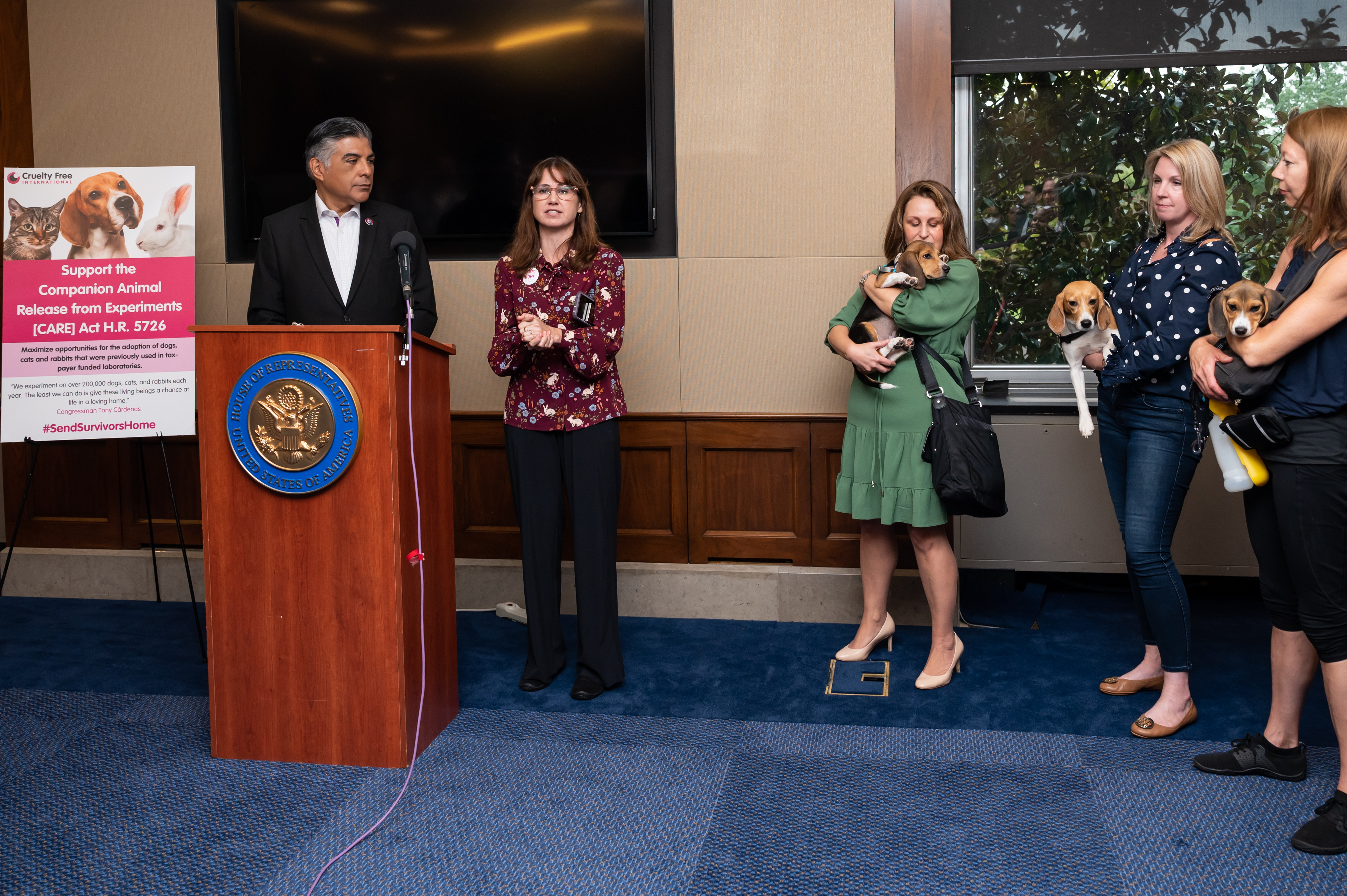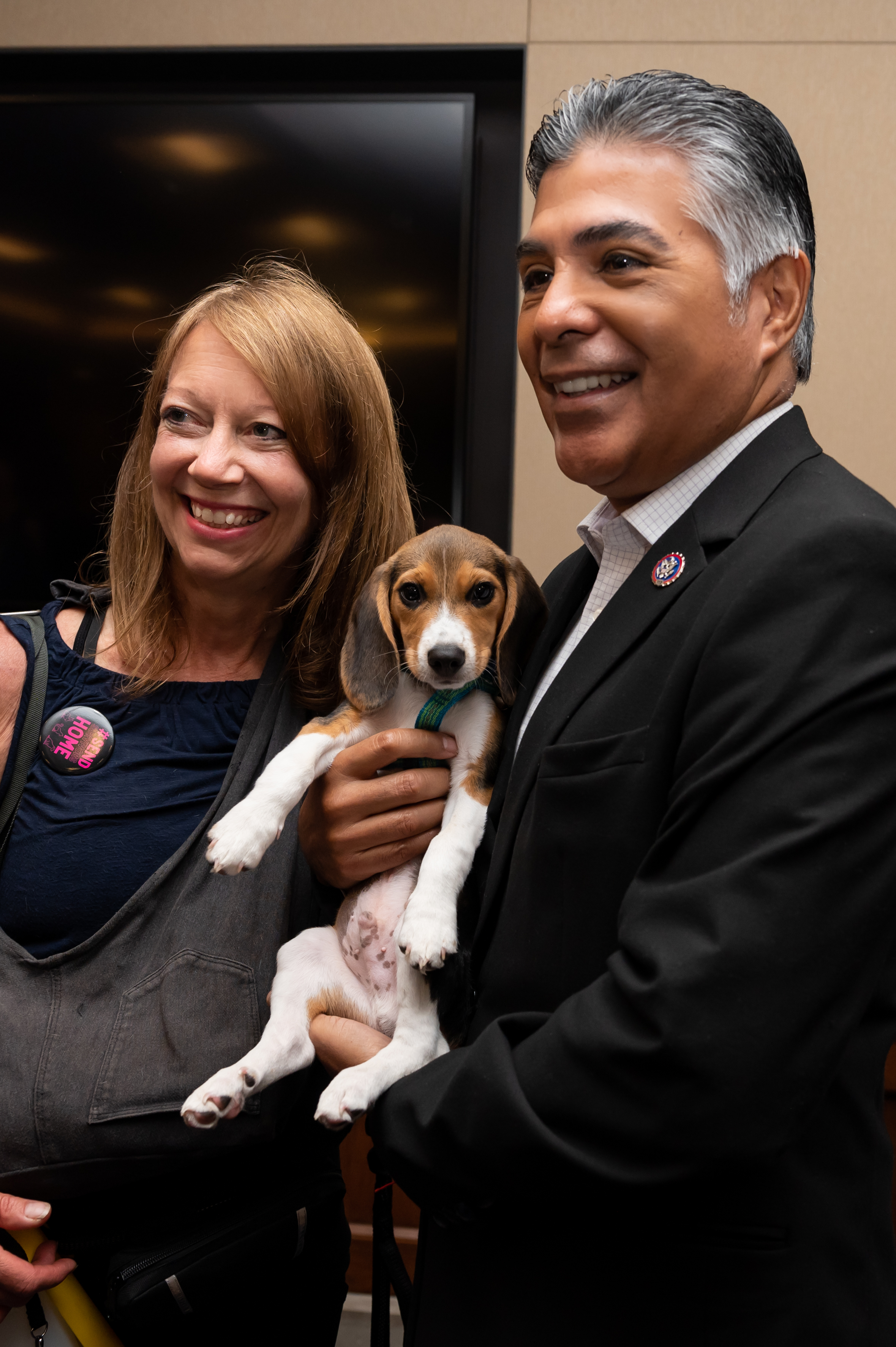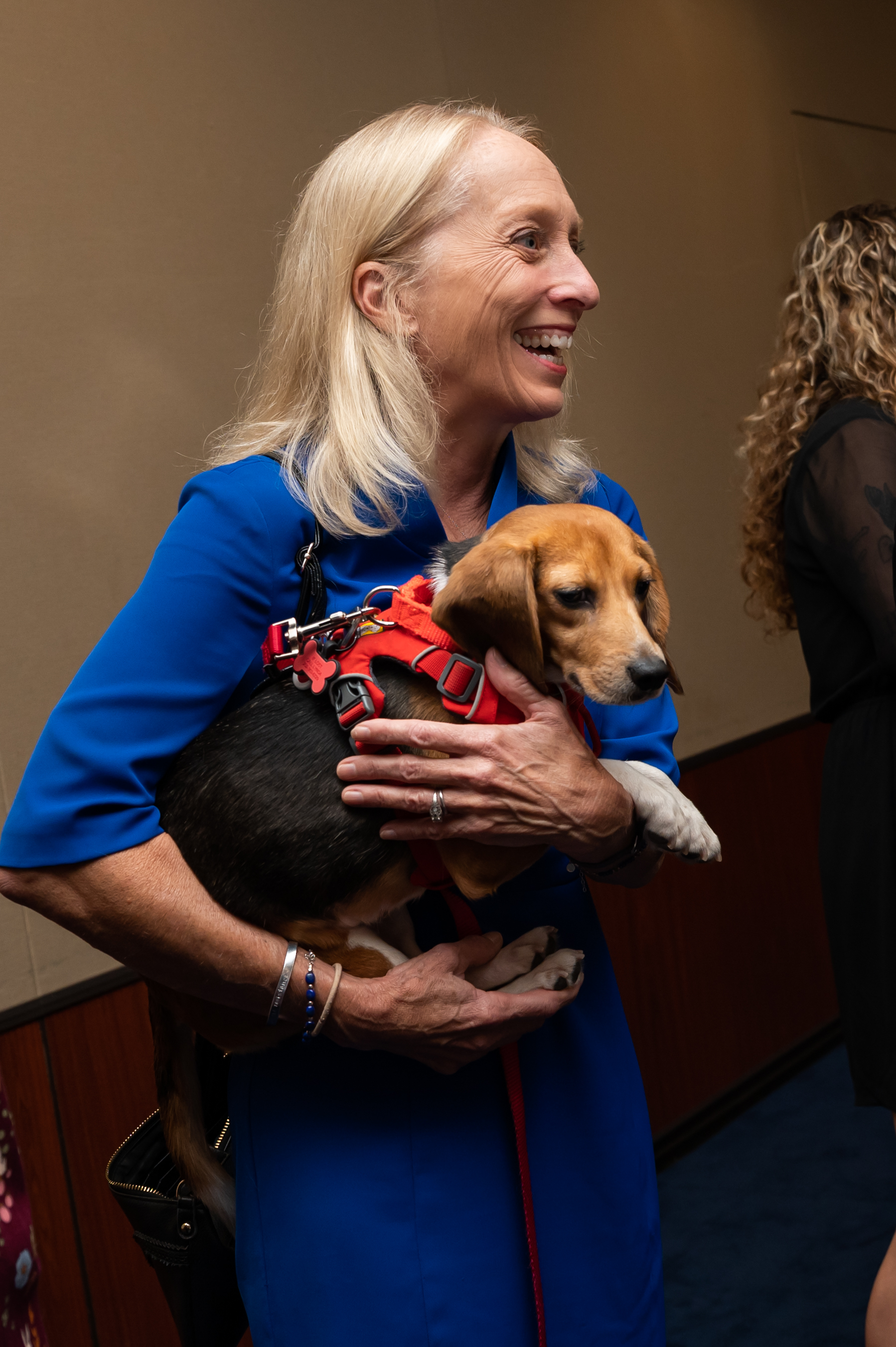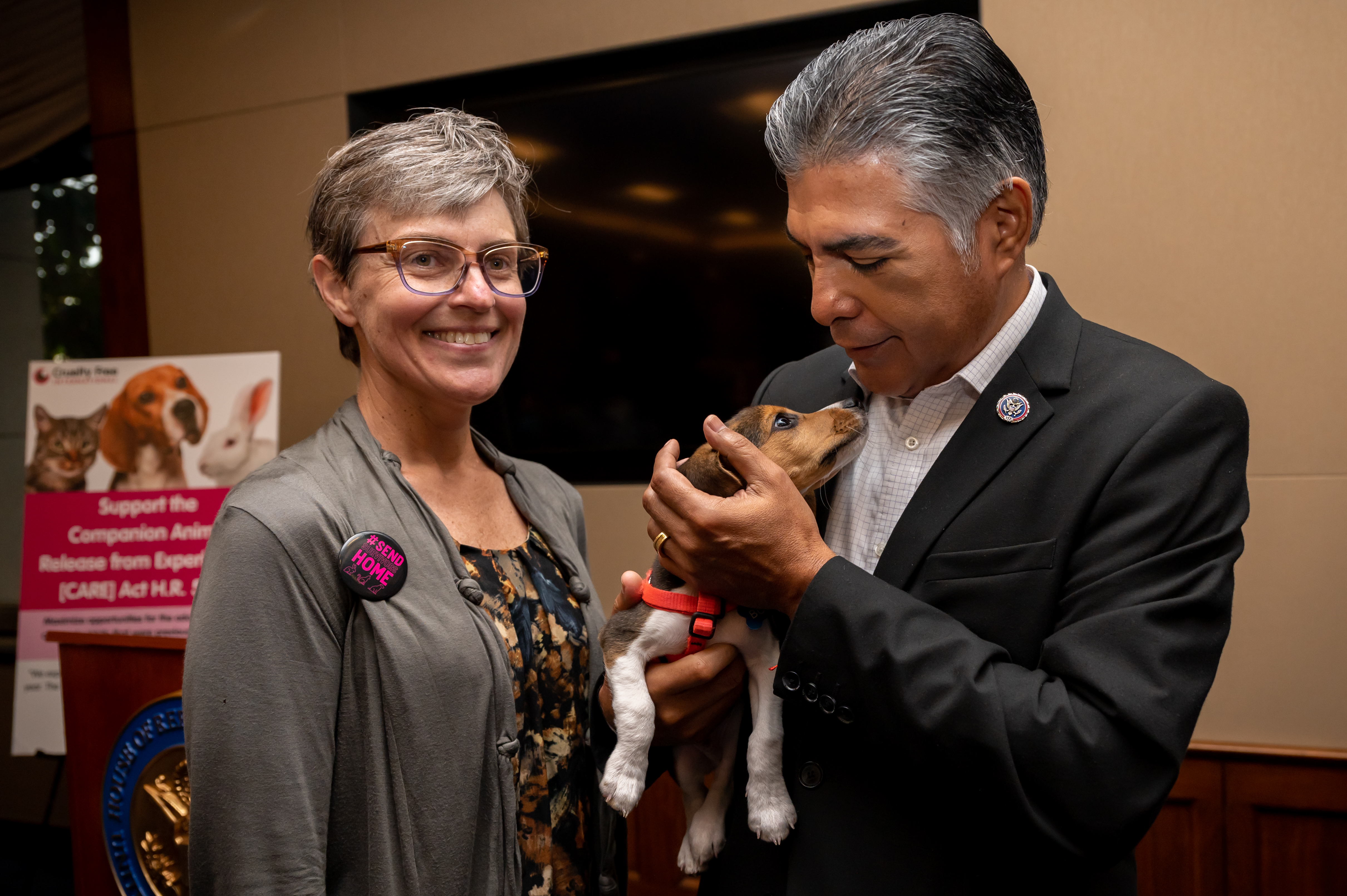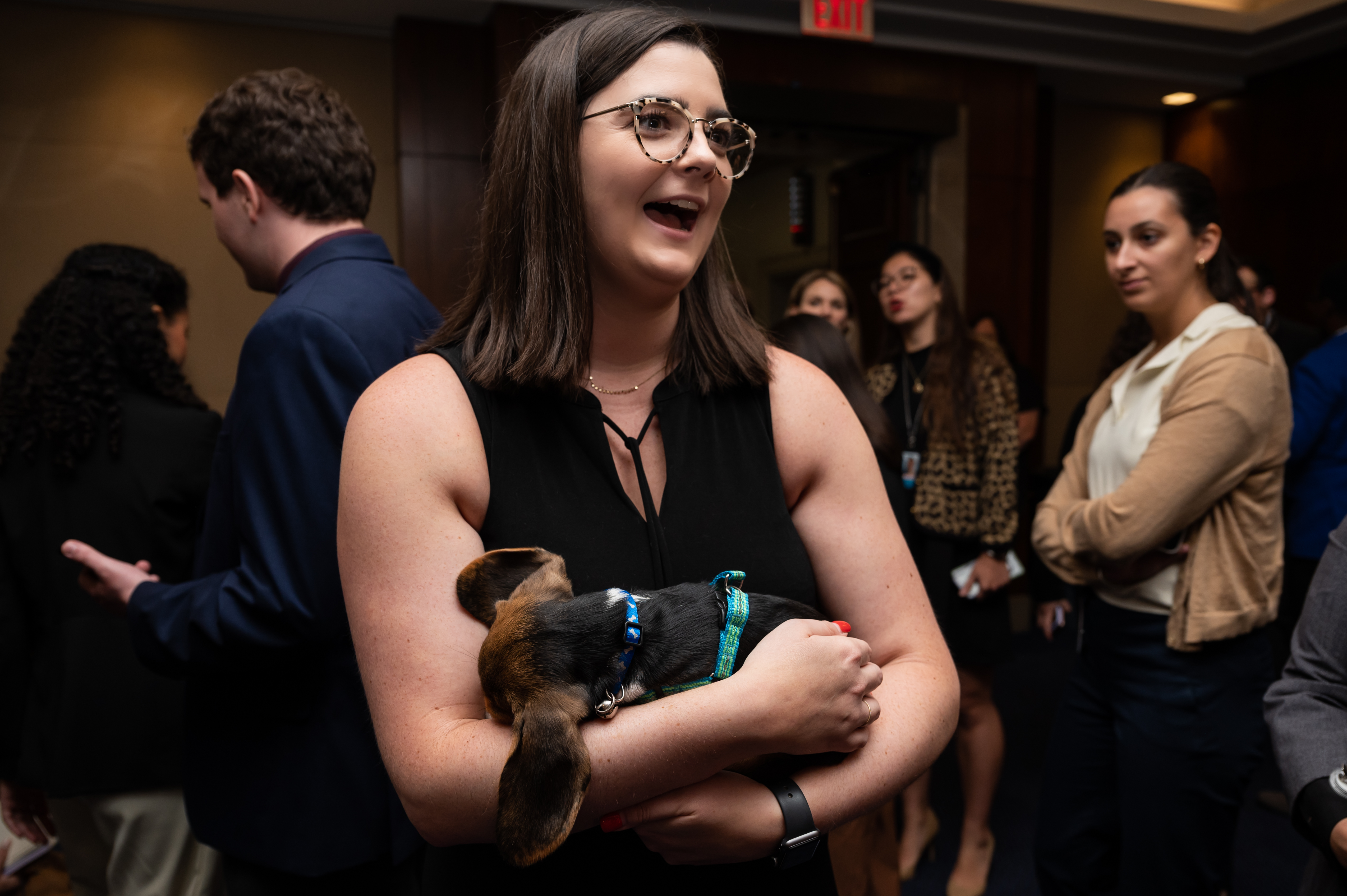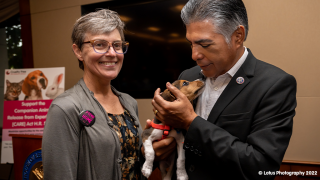
Help us give laboratory survivors a second chance to live
Beagles rescued from the Envigo breeding and research facility in Virginia joined Congressman Tony Cárdenas, Homeward Trails Animal Rescue and our North America Head of Public Affairs, Monica Engebretson, on Capitol Hill last Thursday to promote the Companion Animal Release from Experiments [CARE] Act.
All seven beagles were rehomed by the Fairfax Station, Virginia-based Homeward Trails Animal Rescue after being removed from the facility where 4,000 beagles were rescued earlier this year.
The CARE Act could help some of the 60,000 dogs, 18,000 cats, and 140,000 rabbits who are bred and used in research in the United States every year. Many of these animals suffer and die in cruel, unreliable tests – including many used in research facilities that receive tax-payer funding from the National Institutes of Health (NIH).
Often, they will eventually be considered 'surplus' and no longer wanted by the laboratory – a designation that is frequently a death sentence. But it doesn't have to be.
The CARE Act, championed and sponsored by Rep Cárdenas, could ensure that animals are put up for adoption rather than killed when no longer wanted for experiments in laboratories that receive taxpayer funding from the NIH.
The Bill was re-introduced to the U.S. House of Representatives in October 2021 and is currently open for lawmakers to add their names to it in support, making legislative progress more likely.
Congressman Cárdenas said, “It’s simple: if a federally funded research facility uses pets for research, then they must work to find them homes. This event was proof that animals experimented on can have a second chance at a life in a loving home. Every single beagle on Capitol Hill was there with their forever family. We can save even more lives and get more animals adopted by passing the Companion Animal Release from Experiments (CARE) Act. My bill requires research facilities funded by the NIH to develop adoption policies for those animals. This is part of a larger effort to move away from animal-based testing and research wherever possible and toward more humane and sound scientific research.”
Monica Engebretson, our North America Head of Public Affairs, said, “The CARE Act has the potential to save hundreds of animals who are all unique individuals with personalities and a desire to live. Organizations across the U.S. are ready to help laboratory survivors find happy endings. Anyone who cares about animals should support the CARE Act.”
Sue Bell, Executive Director of Homeward Trails Animal Rescue, said, “Our rescue of these amazing beagles told us all what we already know – that dogs do not belong in massive breeding facilities or research labs where they are devoid of human love, the ability to sniff the fresh air and walk in grass. They belong in homes as family members. These dogs took to their families quickly and are now living the lives every dog deserves. The CARE Act is vital to giving animals in research what is so easy to give – families!”
The CARE Act would build on what 15 states have already done to encourage the laboratory release of animals for adoption by requiring that research facilities that receive funding from the National NIH develop and implement adoption policies for dogs, cats, and rabbits when no longer used for research. It would also require public transparency by requiring that the adoption polices be made available on the facility’s website and requiring that it keep public records of the number animals released for adoption.
You can help by asking your US Representative to become a cosponsor of the CARE Act and by promoting the bill on social media using the hashtag #SendSurvivorsHome. You can also show your support with our campaign T-shirts and hoodies.
P.S. Want to do more? You can also send your U.S. Representative or state legislator our report, Homing Companion Animals from Laboratories in the United States, which provides an overview of state and federal laws and legislation relevant to the homing of animals formerly used by laboratories and includes our recommendations for maximizing the impact of such efforts.





